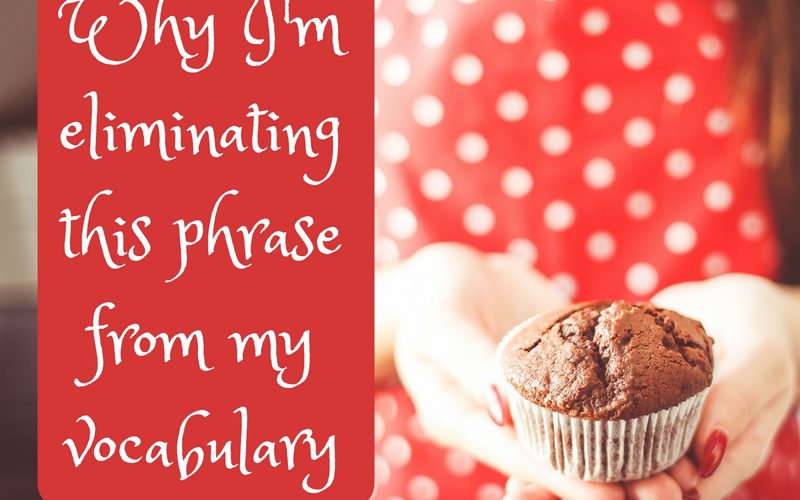In a particularly bad cold and flu season, my family found ourselves down with the flu. My son came down with it first, followed by my daughter, and finally, me. My husband was working and unavailable and I found myself at home with very sick children.
This had never happened to me before. A whole new world, let me tell you. My eyes were opened.
Granola Bar for Dinner
One night in particular, I found myself staring at my open refrigerator. I had planned to go grocery shopping the day Drew started running fever, so we didn’t have much to make a meal with. (Yes, I still coupon and have a fully stocked pantry, but as my husband would say, we may have 15 bottles of barbecue sauce and 20 cans of green beans but nothing to make a meal out of.) Still, after caring for a sick child all day, the last thing I felt like doing was cooking.
I was so tired and so hungry. I almost called my dad and asked him to bring me something — McAlister’s potato soup in a bread bowl sounded so good! — but I talked myself out of it. I didn’t want my dad to have to go out of his way.
I can’t remember what I ate but I think it was a granola bar.
Multiple Offers
That evening got me thinking. Along with my parents, I had several friends check in on me. Most of them offered to help if I needed anything, and just receiving those texts made me feel like I wasn’t alone. They definitely made me feel loved.
When I received those texts I really didn’t need anything. But when the need arose, I didn’t call them back. If I didn’t even want to impose on my dad, I certainly didn’t want to impose on a friend.
“Let me know if you need anything”
When needs have arisen among friends, family, and church family over the years, I’ve wanted to help but didn’t always know how. I wanted to be there but didn’t want to impose if they needed space. So I did all I knew to do. I said, “Let me know if you need anything.” And I really meant it.
But do you know how many took me up on my offer? Zero.
I decided that, “Let me know if you need anything” will be stricken from my vocabulary.
Master Appointment Setter
A few days after we all got well, one of my favorite ladies in church developed health issues preventing her from getting out much. Having been so recently made aware of how much of burden preparing meals are when we’re not at our best, I wanted to do something for her. Instead of telling her to let me know if she needed anything, I tried a different approach.
My text read, “I’m going to bring you dinner tomorrow. Would 4 or 5:30 be better for you?”
(I chuckle writing this because for almost a decade I trained people at my job on how to set a sales appointment. Always give an option; never ask a yes or no question. Guess I’m still using my training after all.)
A Subtle Vocabulary Change
What if we applied something similar to the way we offer our help when people hit hard times? Instead of making statements like:
- Let me know if you need anything
- I’m here if you need me
Instead of asking questions like:
- Can I get you anything?
- Can I bring you anything?
- Is there anything you need?
- What can I do?
We should get a little bolder.
- For someone sick at home: “I want to bring you dinner. Would you prefer spaghetti or beef stew?”
- For someone with a loved one in the hospital: “I’m on my way to see you and I’m swinging by Starbucks on the way. Do you prefer cappuccino, tea, or hot chocolate?”
- For someone who can’t drive herself to church: “I’d love to pick you up for church. Is 9:15 okay?”
- For a mom with a new baby: “I want to help you out today. Would you rather I sit with the kids while you go out for coffee, or take your older ones to the park?”
With each of these scenarios, the option is there for the person to bow out gracefully with a simple, “No, thank you.” But if they really would like assistance, it’s a much easier, “yes” for them.
Love and Dignity
An added benefit to cutting out the generic statement or question is the dignity of the person we’re serving. None of us want to feel needy. None of us want to be a burden to anyone. So by telling someone what you’re going to do for them, it takes the burden off their shoulders and simply communicates how much you care.
The Tastiest Mocha Ever
The last day of our bout with the flu, a friend texted me that she was going to bring me a special treat because she knew what it was like to be stuck at home for so long. She asked, “Would you like a sweet tea or coffee?” (Clearly former sales appointment setters aren’t the only ones who understand the power of giving options.)
She told me what she was going to do, and she gave me an option. That Starbucks beverage never tasted so good.



I definitely like the take charge approach here. I think so many people utter that phrase simple because it is a polite thing to say even if they truly have no intention of helping. I’ve told a lot of people the same phrase, and nobody ever takes me up on it.
I agree. I think while many times we are perfectly serious, sometimes it is simply a courtesy and something we don’t intend to follow up on. Thank you for your thoughts!
I appreciate your thoughts expressed here. I know there are some times I would really love a little help, but I would NEVER ever ask anyone or want to put them out. And I always try to help others, but they always shut me down in the same way I’d shut them down if they offered! We should probably all be open to exchanging our kindness more often.
You’re absolutely right, Heidi! I think sometimes we have to be gracious receivers, too, realizing that by not receiving we’re robbing someone else of the blessing of giving! Great points!
Love this so much, Jill! Great idea to get bold about helping our friends and family!
Thank you for reading and chiming in, Allyson!
I agree–offering something specific makes it so much more real and helpful.
Thanks for reading and chiming in, Barb!
I am also one of those people who means when I say, “let me know…” (I also appreciate it when friends who mean it have said it to me), but I learned this vocabulary change from others who have been through tragedy. Thanks for the encouragement and examples you give us here.
Thank you, Rhonda. It is so easy to slip into it, and you’re right – it’s better than nothing because it does show genuine concern. Like you, I’m hoping to make a little change to hopefully make a bigger difference to someone.
As someone who lost my father earlier this year I can attest that specific offers for help always win over vague assurances. When something traumatic happens sometimes you don’t even know what you need. Thankfully I had a great support system, but I wanted to chime in that coming from the other side I agree this advice is indeed good stuff. Great post.
Sarah, so sorry to hear about your father. Thank you for bringing your viewpoint into the discussion. I agree the deeper the hurt, the more fuzzy we are at being able to know or articulate what our needs are – even the practical ones.